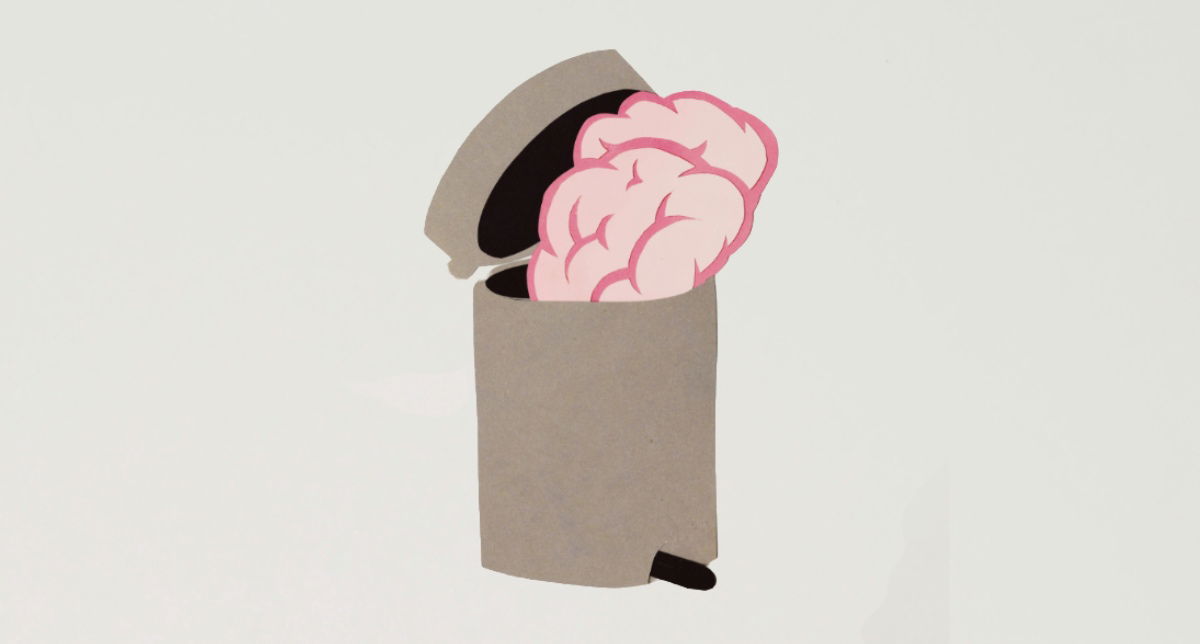Oxford has officially announced its pick for Word of the Year for 2024, a pair of words describing a phenomenon that, sadly, many are likely to be familiar with today.
‘Brain rot’ was announced as Oxford’s selection for the year after tallying the results of a public vote in which 37,000 participated. The choice, revealed in an announcement on Oxford University Press’s website, resulted from an initial selection of six words curated by Oxford language experts, which they collectively felt “reflect the moods and conversations that have helped shape the past year.”
Two weeks and 37,000 votes later, the Oxford team said the results were clear: “Brain rot” was the people’s choice.
While the term somewhat dismally reflects people’s current views on the state of our society, it is also an enigma in terms of its selection for the prestigious recognition of Oxford Word of the Year, notably since it first appeared in print 170 years ago.
According to Oxford, the earliest known use of the term “brain rot” was in 1854, when it appeared in Henry David Thoreau’s Walden.
“While England endeavours to cure the potato rot,” Thoreau mused at the time, “will not any endeavour to cure the brain-rot – which prevails so much more widely and fatally?”
Thoreau’s intended meaning 170 years ago still holds true today. Oxford currently defines ‘brain rot’ as “the supposed deterioration of a person’s mental or intellectual state, especially viewed as the result of overconsumption of material (now particularly online content) considered to be trivial or unchallenging.”
Oxford also recognizes the term’s application regarding “something characterized as likely to lead to such deterioration.”
“Our experts noticed that ‘brain rot’ gained new prominence this year as a term used to capture concerns about the impact of consuming excessive amounts of low-quality online content, especially on social media,” an official statement announcing the selection revealed, adding that the term saw a reported increase in use of close to 230% over the last twelve months.
The term, which began to see increased usage on sites like TikTok and among Gen Z and Gen Alpha users, has also become more common in journalism and other popular mediums.
Perhaps most intriguing of all, Oxford’s language experts note that the rise in the use of “brain rot” with relation to specific content appearing online has even resulted in what they characterize as wholly unique “brain rot language” (BRL) that includes new words like skibidi, a term users employ to describe nonsensical things or behavior, as well as new meaning applied to old terms like the word “Ohio,” which in BRL means “something embarrassing or weird.”
Oxford’s language experts say such developments indicate “a growing trend of words originating in viral online culture before spreading offline into the ‘real world.’”
Although the prevalence of the usage of “brain rot” might superficially appear to indicate a concerning rise in phenomena that contribute to the deterioration of our collective mental and intellectual states, fortunately, that may not really be the case. As Oxford’s language experts also note, the term’s prevalence throughout 2024 has also seemingly led to “more serious conversation about the potential negative impact that excessively consuming this content might have on mental health,” especially among younger audiences.
“‘Brain rot’ speaks to one of the perceived dangers of virtual life, and how we are using our free time,” said President of Oxford Languages Casper Grathwohl in a statement.
“It feels like a rightful next chapter in the cultural conversation about humanity and technology,” he added, comparing the term to the 2023 Word of the Year winner, “rizz,” which Oxford defines as meaning “style, charm, or attractiveness,” or “the ability to attract a romantic or sexual partner.”
“I find it fascinating that the term ‘brain rot’ has been adopted by Gen Z and Gen Alpha, those communities largely responsible for the use and creation of the digital content the term refers to,” Grathwohl also said.
“It demonstrates a somewhat cheeky self-awareness in the younger generations about the harmful impact of social media that they’ve inherited,” he added.
Micah Hanks is the Editor-in-Chief and Co-Founder of The Debrief. He can be reached by email at micah@thedebrief.org. Follow his work at micahhanks.com and on X: @MicahHanks.

